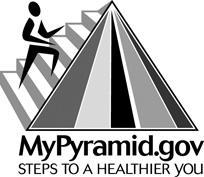
You can advance your education, learning capabilities and academic status by eating healthy and getting a grip on a nutritious lifestyle.
Healthy people generally do better in any of life’s activities, even school. If you are overweight or are eating unhealthily, change is possible.
“I know I am doing everything I need to be doing as far as my school work goes, but sometimes I feel like I can use an extra boost from somewhere,” said Santos Martinez, a Business major at Palo Alto College.
Health majorly affects the way we learn. For those of us who love to have the competitive edge, what we eat directly affects the way our brain and body functions.
Linda Ibarra-Gonzales, an assistant professor of Biology at Palo Alto College who has a master’s degree in Nutrition, said, “Neurons in the brain need to be stimulated by good nutrition.” Neurons are cells that process and transmit information.
Even small steps can be taken to make a difference. Ibarra-Gonzales suggested not eating out as often. You still can, but try to gradually cut eating out down over time. She suggested that you eat three meals a day with small snacks in between. For instance, choose whole grains found in wheat, oats and certain types of cereal, rye, barley, and brown rice. Other foods to select are vegetables, both green and orange, and proteins, such as lean cuts of meat and fish. For snacks in between meals, fresh fruits, nuts and fat-free yogurts are an excellent choice.
Carbohydrates, simple and complex proteins, vitamins and minerals, and fats are major areas of nutrition that we usually find challenging to manage or balance.
Fats are considered morally wrong by some people because they hear the word and think just because it’s fat that it cannot be good for them.
Clarece Mitchell, a freshman at Palo Alto College, said, “I don’t diet and I usually eat whatever I want, but I do try to stay away from most fats because I don’t want to end up overweight.”
The body needs a good fat intake so we have enough to burn off to give us energy. According to an online source at the International Food Information Council, health-conscious people should consume less than 10 percent of their daily calories from saturated fats like those found in meats, baked goods and full-fat dairy products. The site also states that for unsaturated fats, like those found in fish, nuts and vegetable oils, health-conscious people should keep fat intake between 20 and 35 percent of their total calories.
According to an online source at FC&A Publishing, about 60 percent of our brain is composed of fat. Fat acts like a super highway, increasing the speed of the nerve impulses as they pass over the fat covering of our brain.
Carbohydrates are also an essential part of good nutrition. Breads, beans, potatoes, corn, and spaghetti are key, because once they are in the body they break down slowly to create what is called glucose.
Dr. Eleanor Skelley, chairperson of the Science Department at Palo Alto College, said, “Glucose is necessary for brain function. Your brain runs on glucose.”
Glucose is sugar in the blood. Fluctuating levels can cause us to feel dizzy, and we will experience mental confusion. To keep this from getting out of control, watch the amount of sugar you intake throughout the day. Also, keep feeding your metabolism with healthy snacks between meals throughout your day to avoid a rollercoaster experience.
Sending signals from our brain throughout our body and back to our brain is the job of neurotransmitters, messengers created from the amino acids found in protein foods, such as meats, fish and cheese. Helping the amino acids convert into transmitters are vitamins and minerals. Together, these nutrients will ensure the brain’s efficiency and optimize learning capabilities.
“Healthy eating is my style, and I try to stick with it as much as possible,” said Carlos Campos, a Photography major at Palo Alto College. “I usually stick to a high protein diet because it gives me great energy and gives my mind focus and clarity.”
Diets play their role in our learning as well. Cutting out certain food groups altogether can be very harmful.
Skelley said, “Not getting the right balance of nutrition can cause the immune system to deplete and make it difficult to fight off infections when we get sick.”
Malnutrition also causes us to be less curious and certainly less attentive when it comes to learning.
Changes can be small and made over time, but good nutrition has to start with you. Get on track soon and start doing your body this favor. People can give you the information you need to live nutritiously, but they cannot force you to jump on the wagon. You have to help yourself. Aren’t you worth it? Visit www.mypyramid.gov for inspiration.